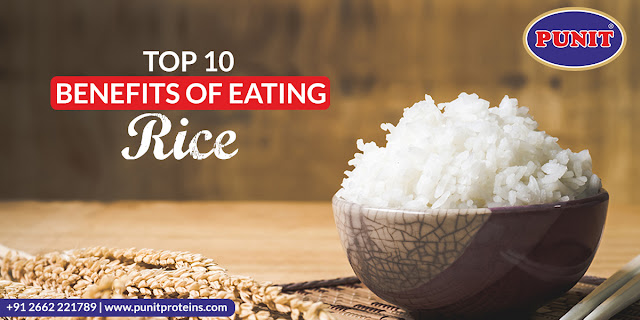What are the Health Benefits of Brown and White Basmati Rice?
When you first look at different types of rice, it's conceivable that basmati rice doesn't look any different from the other types of rice at all. On the other hand, you just need to take one whiff of the grain to realise that there is a substantial contrast between the two. When basmati rice is cooked, it gives out a smell that is very distinctive and, according to a large number of individuals, smells very much like popcorn. In point of fact, "full of aroma" or "fragrant" is what the word "basmati" means when translated from its native language of Hindi. This particular variety of rice has earned the title of "queen of fragrant rice" in certain parts of the world.
The production of non sticky basmati rice in India accounts for around two-thirds of the total production worldwide. Both India and Pakistan produce their own versions of basmati rice. Researchers from India's Udaipur region have discovered evidence of a long-grain rice variety that goes back to between the years 2000 and 1600 BC. Despite the fact that its exact origins are unknown, archaeologists believe that this particular variety of basmati rice is the oldest of all the varieties of basmati rice that are common today.
The foothills of the Himalayas are considered to be the best for the cultivation of basmati rice, which dates back thousands of years. It is now used in a wide variety of recipes from India and is popular in cuisines all over the world. Punit Proteins is the most popular and trusted supplier of non sticky basmati rice in Gujarat, India.
There are two different forms of basmati rice: white and brown. Both have a flavour resembling nuts and a scent all their own. The white variety of basmati, on the other hand, is treated more. There is no trace of the hull, bran, or germ left behind. When processing brown basmati, one needs simply remove the hull. Both kinds are an excellent way to add some flavour as well as vital nutrients to your diet.
What are the Health Benefits of Brown and White Basmati
Rice?
●
Diabetes:
The majority of varieties of rice,
especially white rice which possess a high glycemic index, whereas the glycemic
index of basmati rice is significantly lower. Basmati rice is considered a food
with a glycemic index ranging from moderate to medium because its glycemic
index ranges from 50 to 58. Even if you are suffering from diabetes, you may
still eat healthily by incorporating basmati rice into your diet in moderate
amounts.
●
Fibre:
Non sticky basmati rice, in addition to having a lower glycemic index, may also have a substantial quantity of fibre; however, one must always verify the nutrition label before consuming basmati rice. Increasing the amount of dietary fibre that you consume on a daily basis may assist to lower the risk of acquiring type 2 diabetes.
Constipation is one of the digestive
disorders that can result from a diet low in fibre. As the fibre content in
basmati rice tends to be soluble, it is able to provide weight to the stool
while also assisting in the movement of waste through the digestive tract.
●
Better Heart Health:
The incidence of cardiovascular
disease can be lowered by eating whole grains like brown basmati rice. Lower
blood cholesterol is one of the health benefits associated with a diet high in
whole grains. Furthermore, they help reduce excessive blood pressure, which is
a risk factor for cardiovascular disease.
●
Reduced Risk of Cancer:
In comparison to its white
counterpart, brown basmati rice has around 20% more fibre than other varieties
of brown rice do on average. Diets high in fibre can help lower the chance of
acquiring some types of cancer, including colorectal cancer in particular.
Daily consumption of approximately 3 fluid ounces of whole grains may reduce
the chance of developing this particular kind of cancer by approximately 17%.
If you are looking to place a bulk order for non sticky basmati rice, Punit Proteins is the most noteworthy
distributor of all types of basmati rice in India.
●
Better Brain Health:
The B vitamins, particularly vitamin
B1, are abundant in basmati rice (thiamine). Each serving provides you with 22%
of the daily value that is suggested for you. Wernicke encephalopathy is a
disorder that can be caused by a lack of thiamine in the body, which is an
essential nutrient for brain health.



Comments
Post a Comment